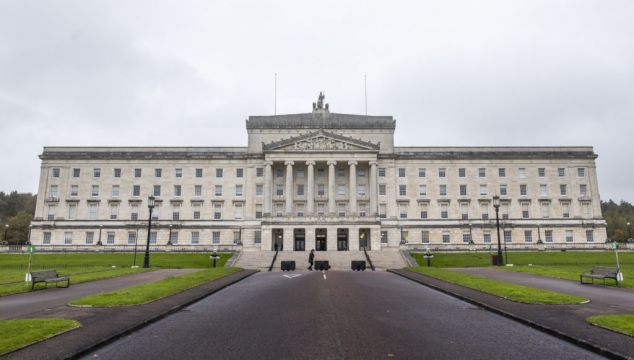A range of revenue-raising proposals for public services in Northern Ireland have been described as “punitive and sinister” by Sinn Féin.
MLA Deirdre Hargey said the measures, reported to include increasing the price of school dinners and fares for public transport, are a tactic by the Northern Ireland Secretary Chris Heaton-Harris to put pressure on the DUP to return to the Stormont power-sharing institutions.
Politicians from the largest four parties met with the head of the Northern Ireland Civil Service, Jayne Brady, on Thursday as part of ongoing dialogue about preparations for the restoration of the Stormont Assembly.
Parties had been presented with a briefing paper, compiled by Stormont civil servants, which includes a list of more than 40 potential revenue-raising measures.
In June, Mr Heaton-Harris instructed Stormont officials to provide him with information on such measures.
He has argued additional revenue-raising is required to balance the books in Northern Ireland, where Stormont departments are facing significant budget pressures during the power-sharing impasse.
The BBC has reported that other proposed measures in the briefing paper include asking people to pay for school transport, raising Housing Executive rents and street parking charges.
But Ms Hargey said the region instead needs to examine a “fiscal floor” financial framework, similar to what has been negotiated in Wales.
She said: “This is a punitive and sinister approach by the British Secretary of State to create anxiety within the public and put pressure on the DUP.
“Part of the discussion that we did have around our finances is looking at a fiscal floor that is in Wales, for example, that was negotiated previously.
“Some of the evidence that we had presented to us this morning is that we are way below the fiscal floor, if there was one introduced here in terms of public financing.
“When you measure that against the need, we have a higher need, yet we are getting a lower sum of money, these are part of the things that we need to correct.”
DUP leader Jeffrey Donaldson said the Barnett formula, which largely decides Stormont’s budget allocations from the UK Treasury, needs to be readjusted to provide more funding.
“In terms of the matters about the Secretary of State’s request for additional fiscal measures in Northern Ireland, let’s be clear, that came from the Secretary of State, not from the Northern Ireland parties,” he said.
“We have no part in that. We have made clear to the Secretary of State that he should leave these things to an incoming executive.
“We will, of course, look at our ability to fund our public services in Northern Ireland, but as we’ve been saying consistently, the problem is not the need to find new fiscal measures to punish and tax the people of Northern Ireland.
“The need is for the Government to restore our funding formula to meet the needs of the people of Northern Ireland. It isn’t meeting that need.”
Alliance Party leader Naomi Long said Northern Ireland is in an “unprecedented position” in terms of its public finances.
She said: “We cannot cut our way out of this crisis, nor can we reform our way out of this crisis.
“Asking the public to pay more for less when it comes to public services is not a solution.”
UUP MLA Mike Nesbitt added: “Those revenue-raising proposals belong to the Secretary of State, not to any of the parties.
“I have seen a list of 40-plus revenue-raising areas, I would like to see the detail behind them.”







